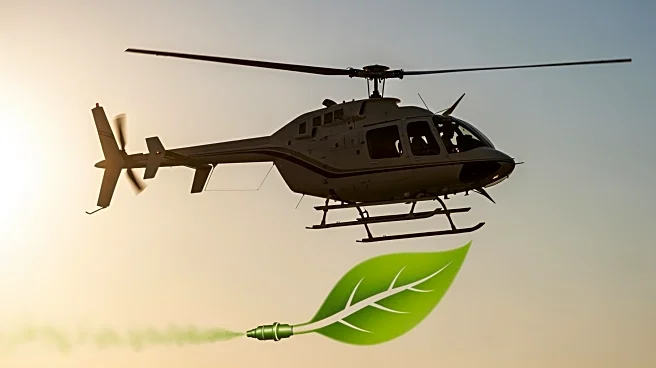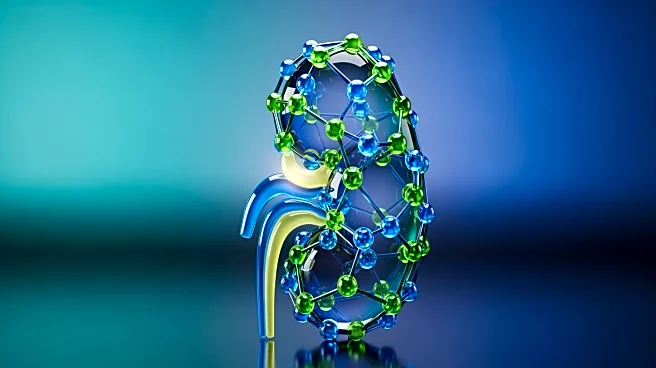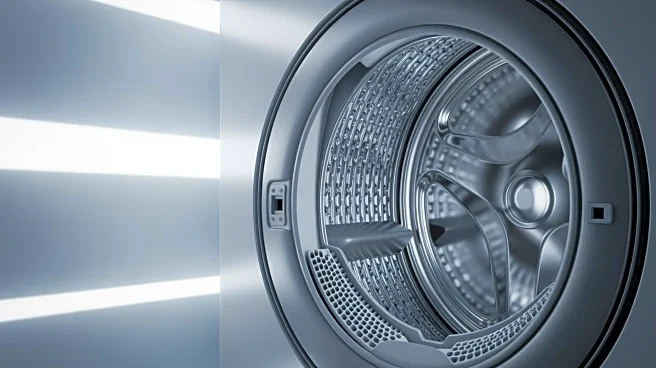What's Happening?
The Bell 505 helicopter has successfully accumulated over 700 flight hours using blended Sustainable Aviation Fuel (SAF). This achievement marks a significant milestone in the aviation industry's efforts to reduce carbon emissions and promote environmental sustainability. The use of SAF in the Bell 505 demonstrates the feasibility of integrating eco-friendly fuel alternatives in rotorcraft operations, paving the way for broader adoption across the sector.
Why It's Important?
The successful use of SAF in the Bell 505 highlights the aviation industry's commitment to reducing its environmental impact. As the sector faces increasing pressure to address climate change, the adoption of SAF represents a crucial step towards achieving carbon neutrality. This development
could encourage other manufacturers and operators to invest in sustainable technologies, potentially leading to widespread changes in fuel usage practices. The environmental benefits of SAF, including reduced greenhouse gas emissions, align with global sustainability goals and could influence regulatory policies and industry standards.
What's Next?
Following this achievement, Bell and other industry stakeholders are likely to continue exploring and investing in SAF technologies. This may involve collaborations with fuel producers, research institutions, and regulatory bodies to enhance the availability and efficiency of SAF. The aviation industry will also focus on overcoming challenges related to SAF production, distribution, and cost-effectiveness. As more aircraft adopt SAF, the industry could see a shift towards greener operations, influencing future aircraft designs and fuel strategies.














